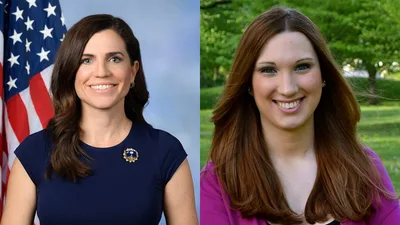A recent discourse surrounding the biological and social aspects of gender identity has gained traction, especially with prominent voices like Congresswoman Nancy Mace weighing in on transgender issues. Mace, who represents South Carolina’s 1st district and is known for her outspoken stance on various matters, engaged in a significant debate on December 6, 2024, addressing the contentious issue of transgender bathroom rights. In her commentary, she has been quoted asserting her belief that women’s spaces should be reserved for those who are biologically female, citing concerns about fairness in competitions and safety. She remarked, ‘Women want to feel safe in their spaces, and that includes in bathrooms.’ This sentiment has been echoed by other figures, including Sarah McBride, a notable advocate for LGBTQ rights and a transgender woman herself, who argues for a more inclusive understanding of gender identity. McBride’s perspective highlights the evolving nature of biological definitions, stating, ‘Gender isn’t solely about biology; it encompasses identity and lived experiences.’ The dialogue extends beyond individual opinions, delving into the complexities of defining gender and understanding how transgender individuals navigate a society with traditionally binary views. A prominent academic commentary on this topic posits that while trans women may be assigned male at birth, their gender identity as women cannot be dismissed purely based on biological classification. This conversation connects with broader themes in society, leading to questions about legislation, public policy, and the rights of transgender individuals, which continue to spark heated debates across various platforms.
The Complexity of Gender Identity and Biological Sex: Insights from Expert Opinions













